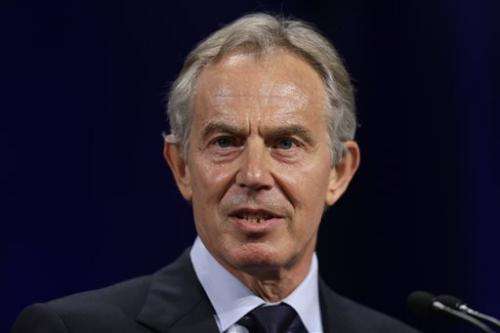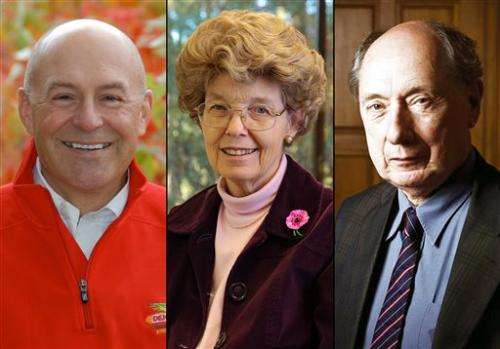World Food Prize takes on biotech, global warming

The World Food Prize Foundation is confronting both opposition to genetically modified crops and the divisive issue of global warming as it gathers hundreds of experts and national leaders to talk this week about how to feed a growing global population.
By awarding this year's prize to three biotechnology pioneers, the nonprofit foundation infuriated environmental groups and others opposed to large-scale farming. Two of the recipients hold prominent positions at biotech companies—Mary-Dell Chilton, founder and researcher at Syngenta Biotechnology, and Robert Fraley, chief technology officer at Monsanto. The third is Marc Van Montagu, founder and chairman of the Institute of Plant Biotechnology Outreach at Ghent University in Belgium.
But their line of work is in keeping with the philosophies of Norman Borlaug, the prize's founder, who was a strong advocate of biotechnology as a way to increase crop production. Van Montagu and Chilton independently developed the technology in the 1980s to stably transfer foreign genes into plants, which led to creating the means to genetically engineer plants. Fraley genetically engineered the first herbicide-resistant soybean in 1996.
"We're entering the period that Norman Borlaug worried about. We are facing the greatest challenge in human history, whether we can sustainably feed the 9 billion people who will be on our planet by 2050," foundation president Kenneth Quinn said.
Borlaug, the 1970 Nobel Peace Prize laureate awarded for his efforts to fight hunger and boost agricultural production, knew the three recipients, and expressed a wish before his death in 2009 that they be honored, Quinn said.

The World Food Prize Foundation relies on corporate, private and government contributions. Among its donors are Monsanto and Syngenta Foundation, and the news that scientists working for those companies drew immediate criticism.
"Rather than encouraging sustainable farming and self-sufficiency in impoverished communities as a way to alleviate poverty and malnutrition, the World Food Prize has been 'won' by a profiteering, biotech, seed-and-chemical monopolist that's the freakish opposite of sustainability," former Texas Agriculture Commissioner Jim Hightower wrote on his website Monday. He's been invited to speak Wednesday at an event organized by the local Occupy World Food Prize organization.
The Occupy group also has planned protests designed to discredit the prize and disrupt the foundation's activities, which attracts about 1,000 scientists, policy experts, political leaders and business executives each year. Last year, protesters were arrested.
This year, former British Prime Minister Tony Blair and Cardinal Peter K.A. Turkson, president of the Pontifical Council for Justice and Peace at the Vatican, are scheduled to attend the three-day World Food Prize symposium. Turkson has also agreed to speak at the opposition event.
Thursday's award ceremony is at the Iowa Capitol.
© 2013 The Associated Press. All rights reserved.















